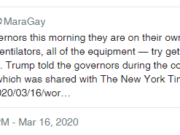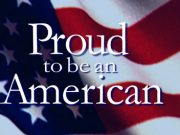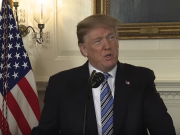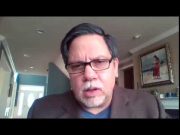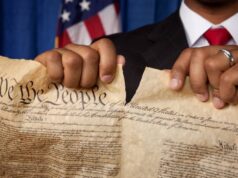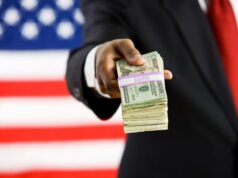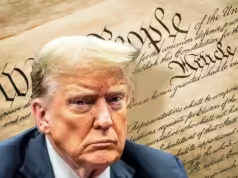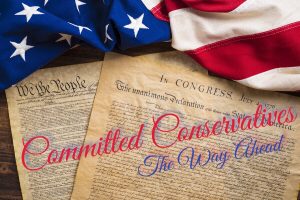Nearly any article that connects conservatism with being gay in any positive way becomes automatic click-bait. Why is that? Why does that combination fascinate and surprise people so much? Why can’t one be gay & conservative? I know a great deal about being conservative. In fact, I know so much about what being conservative means, as opposed to how others define it, that I was inspired to help start this blog. One of our purposes is to be the voice of true conservatism.
I don’t know what being gay is like. However, just like every American, I have gay family members and gay friends. Here’s the thing … as a conservative, I just think of them as family and friends. I know more think of them as gay, then I think of my heterosexual friends as straight. The box of identity politics is one in which I won’t be packaged. That too is a true conservative principle.
In my mind, being gay and being conservative are not clearly at odds, though that is the implication when one sees sensationalized pieces that “out” conservative gays. Conservatism, at its heart, is about liberty and limited government. Nothing about those concepts is anti-gay. Conservatism, as I have explained, is not about the absence of government. It is about constraints on government that prevent limits on our liberty. Government does not provide us rights, it secures those rights.
Nonetheless, gay advocates have clashed for decades with elements who have historically considered themselves “conservative.” Battles over “gay rights” that focus on deeply personal issues like marriage have pitted some conservatives against gays. Ironically, while few will find a greater advocate and fan of marriage than me, my conservative values would tell you that it is more offensive to have government involved in marriage than it is to have gays involved in marriage. That is to say, government blessings of unions and the conferring of benefits is more at odds with conservatism than most conservatives realize.
Yes, I am a constitutional conservative. To this day, under the Constitution, the only right and correct ruling regarding marriage is that it is a states’ rights issue. However, government’s “interest” in making marriages is really about society incentivizing married, stable, families because that is the least economic drain on government. This is why the government created the incentives for marriage. The argument accurately might go, if the people are the government, and they want to encourage marriage, then the people ought to decide what type of marriage in which they invest. That’s true. I completely understand that principle.
However, maybe it is time for government to get out of the marriage business. Nothing government has done has improved it, made the institution stronger, or made marriage more stable. That might be the ultimate conservative position.
Indeed, it is heterosexuals who have inflicted on marriage whatever ails the institution, all with the blessing of government.
The Constitution of the United States permits us free association with whomever we want, and that does mean freedom to love as we desire. Under the 10th Amendment, marriage, to the extent it is to be “regulated,” falls to the states. That’s because the Constitution is silent on the issue. Again, these are not opinions; that is how the Constitution works. However, just because a state can create marriages, doesn’t mean it ought to create or define them. How limited do we really want our governments to be?
Without state-sanctioned marriage, associations simply become religious or personal choices, all of which we can enforce by contract. That’s surely a more conservative position than one where purported “limited government” advocates assert the power of government to pick and choose which form of marriage is superior and deserving of state sanction. It’s not the state’s business, as far as liberty is concerned.
The marriage issue is now settled.
I think they got it wrong on the law. However, we are now in a position to move forward. It is time to settle the petty moralizing that fring wing of conservatives have with our friends and family who love their partners as deeply as we love our own. Our conservatism is strong enough to embrace their liberty. Moreover, as conservatives, we reject, categorically, the inanity and destabilizing effects of identity politics.
Most conservative gays express one simple view; they just want to live in liberty like their countrymen. There is nothing about that view of liberty that is at odds with conservatism. If we are to move forward as a society, and if conservatives are to be true to the principles of conservatism and liberty, stories about gays being conservative won’t be so shocking. They will be a right, just, and wholly expected outcome.
I was inspired on this subject because of this story. I am sorry this gay conservative saw such ostracism in and among his friends. Perhaps it is time conservatives among us let everyone know that conservatism, liberty, and fellowship, are bigger, stronger, and far less petty than the forces of fear and division that promote identity politics.
Author: Richard Kelsey
Richard Kelsey is the Editor-in-Chief of Committed Conservative.
He is a trial Attorney and author of a #11 best-selling book on Amazon written on higher education, “Of Serfs and Lords: Why College Tuition is Creating a Debtor Class”
Rich is also the author of the new Murder-Mystery series, “The ABC’s of Murder,” book one is titled, “Adultery.”
Rich is a former Assistant Law School Dean and Law Professor. At Mason Law Kelsey conceived of, planned, and brought to fruition Mason’s Center for the Protection of Intellectual Property, known as CPIP, drawing on his expertise as a former CEO of a technology company specializing in combating cyber-fraud.
In 2014 he was elected by the graduating class as the faculty speaker at their graduation.
He is a regular commentator on legal and political issues in print, radio and on TV. Rich has appeared on hundreds of stations as a legal expert or political commentator. He provided the legal analysis for all stages of the Bob McDonnell trial and appeal for numerous outlets including NPR and WMAL.
Rich also writes on occasion for the American Spectator and CNSNews.com.
In his free time, Rich is part of the baseball mafia of Northern Virginia, serving on numerous boards and as a little league and travel baseball coach.
His Twitter handle is @richkelsey.









